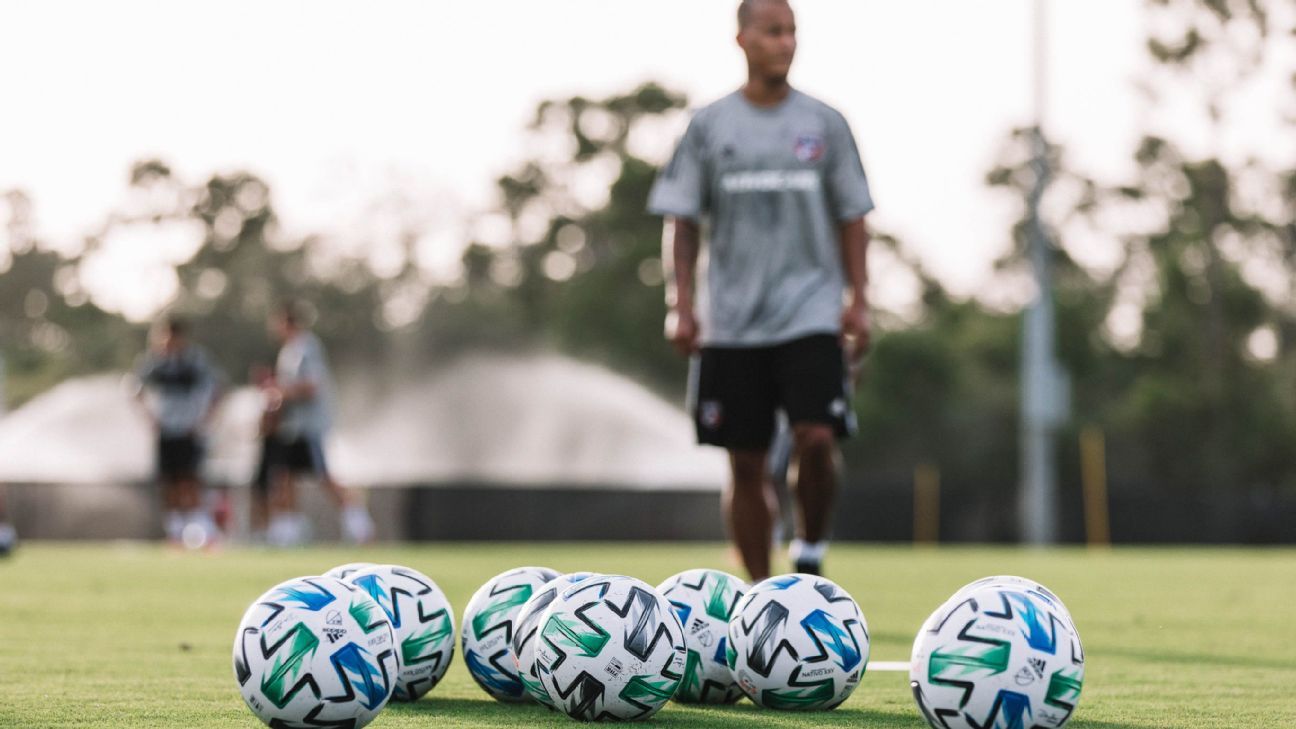After a nearly four-month hiatus, the games are about to resume for MLS. It hasn’t been easy, what with a global pandemic and an overall struggle to keep players and staff free of COVID-19, but enough has been done to enable the tournament to begin.
For just about every team it’s felt like preseason all over again, with clubs reduced to individual workouts at the start before gradually moving on to full-team sessions in their home markets. As such, and with scrimmages against real opponents in short supply, the play is likely to look a bit ragged at first. Some teams benefited from the shutdown by getting healthier, while others rued the break in momentum. But the games will go on.
– Stream MLS is Back LIVE on ESPN networks and the ESPN app (U.S. only)
– Stream FC Daily on ESPN+
Here’s a look at how the teams are shaking out ahead of MLS is Back Tournament, which kicks off July 8 with Orlando City SC vs. Inter Miami CF (8 p.m. ET, ESPN).
Jump to: Group A (Orlando, Miami, NYCFC, Philadelphia, Chicago, Nashville) | Group B (Seattle, Dallas, Vancouver, San Jose) | Group C (Toronto, New England, Montreal, D.C.) | Group D (RSL, Sporting KC, Colorado, Minnesota) | Group E (Atlanta, Cincinnati, Red Bulls, Columbus) | Group F (LAFC, Galaxy, Houston, Portland)
Group A
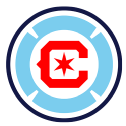
Why they can do well: At first glance, the shutdown came at an inopportune time for the Fire, given that their home opener and a return to Soldier Field was fast approaching. But looked at another way, time has been an ally for Chicago. Back then, new arrivals such as Gaston Gimenez, Ignacio Aliseda and Luka Stojanovic had played little, if at all, for the Fire. The additional time has allowed them to find a semblance of chemistry and build off of two solid road performances prior to the shutdown.
Why they might not: As well as the Fire played in their first two matches — a loss to Seattle and a draw with New England, both on the road — questions still abound about the defense and, in particular, center-back Francisco Calvo, who alternates between brilliant and awful.
The big question: How the midfield pieces fit will bear watching. If Gimenez and Stojanovic — along with holdovers Djordje Mihailovic and Przemyslaw Frankowski — can provide a steady supply line to new forward Robert Beric, the Fire could do some damage.
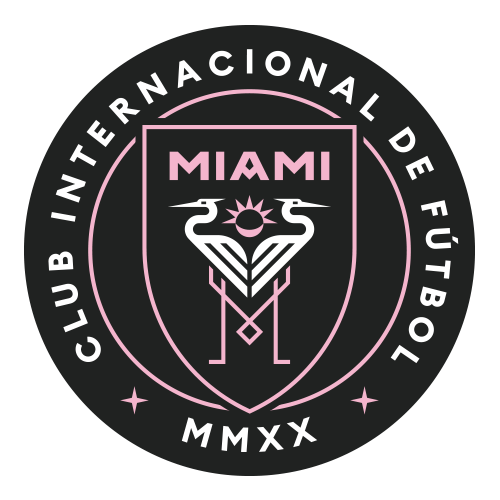
Why they can do well: Miami has looked pretty stout defensively, with new center-back Nicolas Figal impressing. And in Rodolfo Pizarro, IMCF have an attacker capable of winning games by himself. It’s also a team with a fair bit of MLS experience in goalkeeper Luis Robles and midfielder Wil Trapp, among others. (New signing Leandro Gonzalez-Pirez isn’t eligible to play.)
Why they might not: Expansion-itis. Yes, some expansion sides in recent years have done well, and Miami has some decent building blocks in place. But as is often the case with first-year teams, there’s usually one part of the field that is a question mark and that’s true of Miami’s attack, even with the presence of Pizarro.
The big question: How sharp will Julian Carranza be? The former Banfield striker looked set to take up the center-forward role before a foot injury sidelined him in preseason. He should be healthy enough to play a part in the proceedings in Orlando, but it’s still uncertain how much he’ll be able to help.
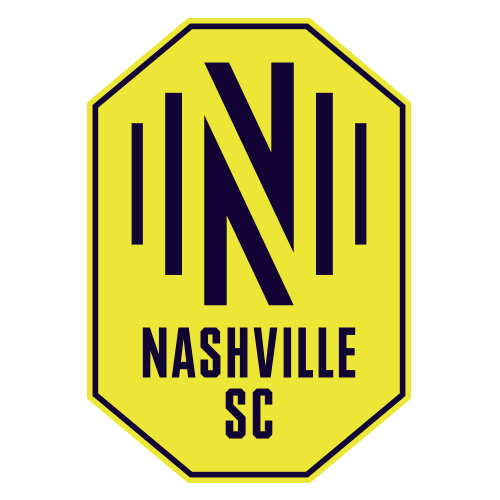
Why they can do well: So far, this team has been built from the back, with the preseason acquisition of U.S. center-back Walker Zimmerman from LAFC an outright coup. The midfield has plenty of grit to it in the form of Dax McCarty and Anibal Godoy, which will keep Nashville in any game.
Why they might not: There’s just not enough quality up top, even as manager Gary Smith says all his forwards will get their opportunities. NSC has been linked with PSV’s Maxi Romero, but that won’t help them in this competition.
The big question: Can Hany Mukhtar and Randall Leal carry Nashville’s attack? Neither player was what one would consider high-profile when they were acquired, but they’ve showed some flashes of quality in the early going. NSC will need more of that if it is to advance.
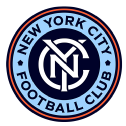
Why they can do well: Despite a pair of 1-0 defeats to start the season — including one in which the Cityzens played shorthanded for 87 minutes — NYCFC still possess one of the more talented sides in the league. Maxi Moralez remains a magician in midfield, the better to set up forward Heber. The back line looks solid and Sean Johnson has been impressive in goal so far.
Why they might not: Yes, the pandemic has given Ronny Deila more time to get settled, but there remains a getting-to-know-you period for NYCFC. With few opportunities to test that out on the field — a pre-tournament scrimmage against FC Dallas was canceled — it seems likely there will be more kinks to work out.
The big question: Can Jesus Medina emerge from his funk? Medina had some bright moments when he first arrived in 2018, but his form has steadily dropped since then. Deila has other options in Valentin Castellanos and Ismael Tajouri-Shradi, but the manager seems determined to give Medina his shot, having started him twice in midfield before the shutdown.
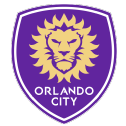
Why they can do well: The attack, at least on paper, looks to be in capable hands, with Nani and Mauricio Pereyra feeding Dom Dwyer. Yes, the team’s offense struggled prior to the shutdown, but both Nani and Dwyer were inactive during that time. Chris Mueller is an attacking wildcard who can do damage out wide. Has he gained enough of manager Oscar Pareja’s trust to start him consistently?
Why they might not: This a team that is decidedly in rebuild mode with Pareja trying to work in a lot of new pieces, especially in the back. It usually takes at least half a season to see if new arrivals will settle in. We’re not there yet.
The big question: Can Dwyer regain his finishing touch? There are worse ratios than Dwyer’s seven goals vs. an expected goals of 10.59, but those are numbers on which he’ll be eager to improve.

Why they can do well: The Union have had an overachieving quality about them for a while now, and that trait serves them well throughout the course of a long season. Now we’ll see if they can step it up. It helps to have a player who finishes like Kacper Przybylko as well as supersub Ilsinho, who is always available to provide a spark. Alejandro Bedoya remains the team’s heart and soul. Getting placed in Group A is a help.
Why they might not: Defensively, the team was unconvincing in the early going. Granted, they won’t be playing LAFC every week, but the Union have been solid for long stretches only to be undone by backbreaking mistakes. If midfielder Jose Martinez can limit his early penchant for conceding fouls in bad spots, Philadelphia can turn this around.
The big question: Can Brenden Aaronson be the man as a No. 10? It’s a lot to ask of a 19-year-old, but he certainly looked the part in a 3-3 road draw against LAFC back in March.
Group B
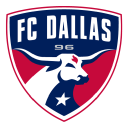
Why they can do well: A team that for years has thrived on its young core continues to benefit from academy products. Reggie Cannon, Jesus Ferreira and Paxton Pomykal have become mainstays in the first XI, with 17-year-old Ricardo Pepi looking poised to join them.
Why they might not: In a word, COVID-19. Nine FC Dallas players and one coach have tested positive since arriving in Orlando, this in addition to three positive tests in the squad prior to leaving for Florida. If there are any more positives — and let’s be clear, the health of the players is of utmost importance — at some point, this is going to cut into muscle. Practice time has been affected as well.
The big question: How big a part will Franco Jara play? Assuming he’s healthy enough to play, Jara is supposed to be the forward who solves FCD’s finishing issues. But he only joined up with Dallas two weeks ago. Manager Luchi Gonzalez says every player will be utilized, meaning forward Zdenek Ondrasek will have a part to play.
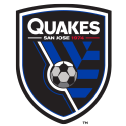
Why they can do well: When the Quakes are at their best, they flummox opponents with Matias Almeyda’s man-marking style and their mission to possess the hell out of the ball. Jackson Yueill has emerged as an elite distributor in midfield, while Cristian Espinoza impressed last season on the wing. The ageless Chris Wondolowski is back for perhaps his final spin through MLS.
Why they might not: The team’s poor stretch run last season saw it leak goals at a rate that left it having to play catchup too often. That didn’t improve in the early weeks of 2020, conceding seven goals. While individual errors abounded, teams seem to get wiser to San Jose’s tactics. The return of midfielder Judson would help.
The big question: How much will the shutdown hurt the Quakes? Granted, the league’s hiatus impacted every team, but San Jose’s man-marking style on defense requires immense energy and there are concerns about if they’ll be fit enough in the extreme conditions given that they weren’t allowed to conduct full-team practices until they decamped for Florida.
2:35
ESPN’s Stefano Fusaro reports on the mood at the MLS is Back Tournament after a match needed to be postponed.

Why they can do well: This is a team that is talented, deep and proved during last year’s run to the MLS Cup title that it can win in all manner of ways. In terms of personnel, Raul Ruidiaz, Jordan Morris and Nicolas Lodeiro drive a balanced and varied attack. Cristian Roldan remains the team’s Mr. Fix-it in that he does a little bit of everything well, while Stefan Frei remains one of the league’s elite keepers.
Why they might not: The Sounders retooled in the areas they needed to — namely center-back and holding midfield — during the offseason through Gomez Andrade and Joao Paulo, but getting them up to speed won’t be a foregone conclusion. The back line in general will be an area to watch.
The big question: Will a post-MLS Cup hangover set in? The Sounders have reached three of the past four MLS Cups, which speaks to their consistency and professionalism, but their ousting from the CONCACAF Champions League at the hands of Honduran side Olimpia certainly gives one pause.
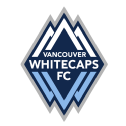
Why they can do well: Vancouver spent big to get striker Lucas Cavallini, and Jordy Reyna is the kind of player who could combine to create a classic big man/little man partnership up top. Goalkeeper Maxime Crepeau was oftentimes the only thing preventing the Caps from getting overrun last year.
Why they might not: Someone still has to get Cavallini the ball. Midfield playmaker Hwang In-Beom is certainly one piece to that puzzle, but there needs to be more.
The big question: Which Ali Adnan will turn up? The outside-back who unsettles opponents with his runs forward, or the guy who looks like a defensive liability? He definitely resembled the former in Vancouver’s 1-0 win over the LA Galaxy before the shutdown.
Group C
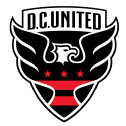
Why they can do well: There is talent in this side, especially on the defensive side of the ball where Bill Hamid remains one of the league’s top keepers, and the center-back duo of Steve Birnbaum and Frederic Brillant are solid.
Why they might not: The attack seemed disjointed in the season’s opening weeks, with Julian Gressel looking miscast as a No. 10/attacking midfielder. Manager Ben Olsen has had the benefit of digging deep into his team’s strengths and weaknesses throughout the past four months and knowing him, a potential answer could be already on the roster.
The big question: Does Federico Higuain have any magic left? The Argentine is the kind of low-risk, high-reward offseason pickup — he previously spent seven seasons as a key piece at Columbus Crew — that has you nodding your head. Is he still a 90-minute player? Probably not, but he’s crafty enough to impact a game late.
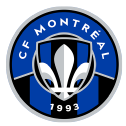
Why they can do well: New manager Thierry Henry had them pretty organized and playing on the counter in the early weeks of the season, and it paid off with four points from their two league games plus a spot in the CONCACAF Champions League quarterfinals. Victor Wanyama brings his Premier League pedigree to midfield and there’s quality in attack as well with Saphir Taider and Bojan.
Why they might not: Because they’re the Impact and they always seem to find ways to self-destruct. Steady play out of their center-backs will help shed that tag.
The big question: Can Maxi Urruti keep up his torrid pace? He has three goals already in two league games this season, and the Argentine forward bagged a dozen for FC Dallas in 2017. That said, his more recent history would suggest a strong “no.” He had four goals all of last year. That said, there is enough attacking talent around Urruti — not to mention a manager who knows a thing or two about scoring — to get him back to double digits.
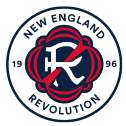
Why they can do well: The Revs are healthier than at any time prior to the shutdown, with playmaker Carles Gil’s return a most welcome development. The return of Gil alongside Gustavo Bou and Adam Buksa gives the Revs some potent attacking weapons. Matt Turner continues to rise through the ranks of the league’s keepers.
Why they might not: There’s not enough of a defensive presence in midfield following the loss of Luis Caicedo for the season after knee surgery. Wilfried Zahibo will tackle, but doesn’t always stay engaged and is more of a passer. The other midfield options aren’t exactly complementary in that regard.
The big question: Who will line up in the center of defense? First-year pro Henry Kessler impressed in his first two starts alongside veteran Andrew Farrell, and by all accounts has plenty of upside. But the return of Antonio Delamea, who is one of the team leaders, could send Kessler to the bench. With the games coming quickly, manager Bruce Arena is likely to make liberal use of his bench.
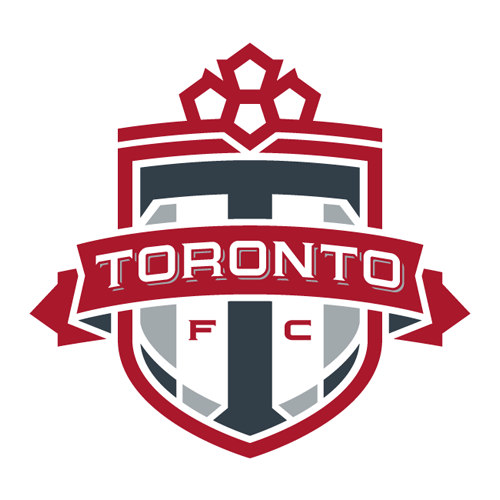
Why they can do well: Toronto has as talented a roster as any team in the league, with Alejandro Pozuelo alone worth the price of admission. Furthermore, the shutdown allowed Michael Bradley to recover from offseason ankle surgery. Marky Delgado and Jonathan Osorio did well in Bradley’s absence as the midfield duo, giving manager Greg Vanney a decision to make.
Why they might not: There are still a few question marks in the wide midfield positions, especially after Ifunanyachi Achara was lost for the season with a torn ACL. All the more reason for Pablo Piatti to step up and start earning his Designated Player money.
The big question: How fit will Jozy Altidore be? The veteran striker spent much of the shutdown in Boca Raton, Florida before returning to Toronto two weeks ago. Vanney told TSN that “it will be a lot to ask Jozy to be ready for the first game.” Granted, Toronto is expecting a deep run, so the expectation is Altidore has some time to find both fitness and form.
1:03
Stefano Fusaro reports on MLS teams sharing facilities in Orlando ahead of the MLS is Back Tournament.
Group D

Why they can do well: The Rapids are absolute monsters on set pieces thanks to the deliveries of Jack Price, and they’ve been effective on the counter. They’ve also shown an ability to press at the right time, like they did in a Week 1 road win over D.C. United. The arrival of 25-year-old Danish midfielder Younes Namli has added some attacking creativity, and the arrival of Braian Galvan will also give the Rapids a boost in the center of the pitch.
Why they might not: Group D is arguably the toughest in the tournament, with the four teams going a collective 6-0-2 over the first two weeks of the season. This is a group in which the Rapids could play well and still not advance.
The big question: Can the Rapids handle increased expectations? This was a team that finished 2019 strong, going 12-7-4 in the last two thirds of the season. They then opened 2020 with two victories. If that keeps up, they won’t be sneaking up on people for long.
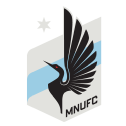
Why they can do well: The Loons are incredibly balanced. Or at least they were prior to defender Ike Opara’s announcement that he didn’t travel to Florida due to a non-COVID-19 health issue. Still, there’s plenty like about this team. There’s the steely Ozzie Alonso in the center of midfield with Kevin Molino, Ethan Finlay and Luis Amarilla leading the attack.
Why they might not: External factors — game states, playing on the road — can influence possession numbers, but there’s no denying the fact that Minnesota has the worst possession percentage in the league at 40.2%. That could be a problem in the Florida summer.
The big question: Can the Loons withstand Opara’s absence? It’s not as if they’ll become a bad team overnight, but it will be mighty difficult to thrive given the security he provides in the back and the amount of risk he allows the team to take going forward. And with Brent Kallman still suspended, Jose Aja is forced to fill the gap in defense.
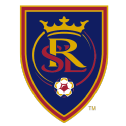
Why they can do well: Even with the retirement of goalkeeper Nick Rimando, RSL’s defense has been stout in the early going, continuing a trend from last year. Nedum Onuoha has been a rock at center-back and in Florida, Everton Luiz will team with Kyle Beckerman to provide an intimidating presence in midfield.
Why they might not: RSL is one of those teams that seems to always be on the rise, but never quite breaks through. It was firmly in the bottom half of the league in terms of chance creation, which has resulted in a lack of goals. It’s odd because looking at Salt Lake’s lineup, the attack ought to produce more than it does. There’s Damir Kreilach (who has spent a ton of time at forward), Albert Rusnak and newly acquired Justin Meram. Young DP Jeizon Ramirez also arrived in the winter.
The big question: Which forward will win out? After undergoing offseason knee surgery, Sam Johnson has been the forgotten man despite being a DP forward. Giuseppe Rossi is trying to resurrect his career after an ungodly string of injuries. Then there’s Kreilach, who always seems to end up as the starting striker, and usually delivering.
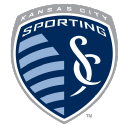
Why they can do well: Peter Vermes finally has the striker he’s been needing for years in Alan Pulido. He added a playmaker as well in Gadi Kinda. Add them to mainstays like goalkeeper Tim Melia, defenders Matt Besler and Graham Zusi, and midfielder Roger Espinoza, and a bounce-back year — and tournament — seems in store for SKC this summer.
Why they might not: The defense was somewhat untested in convincing wins over Vancouver and Houston, and there were times when they weren’t as organized as they would like to be. SKC will face stiffer opposition from Group D opponents Colorado, Minnesota and Real Salt Lake.
The big question: Can Roberto Puncec make fans forget about Ike Opara? That Opara turned in a Defender of the Year campaign last season with Minnesota, while his replacements struggled, had to grate on Vermes. Puncec is the next candidate.
Group E
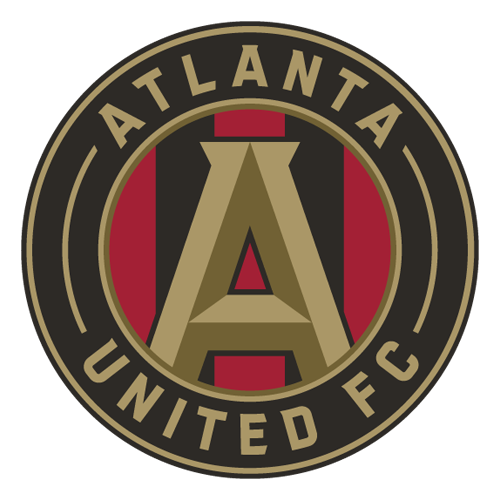
Why they can do well: The Five Stripes still have one of the most talented teams in the league. Sample sizes and all that, but Pity Martinez and Ezequiel Barco looked to be forming a dynamic partnership in attack, while Emerson Hyndman has proved to be an effective replacement for the departed Darlington Nagbe in midfield. The defense is also healthier now than when Atlanta started the season.
Why they might not: Josef Martinez’s absence due to a torn ACL is a massive loss given his talent and sheer will in front of goal. Adam Jahn provides more of a classic target man presence, but he’s no Martinez. Opponents won’t need to be as mindful about the counter without Martinez’s ability to stretch defenses.
The big question: So who will get the goals? Martinez and Barco will take on the bulk of that responsibility, but Hyndman’s contribution of two goals in two games before the shutdown makes him a player to watch as well.
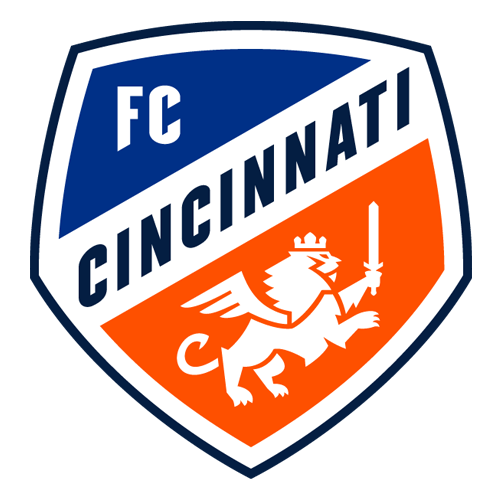
Why they can do well: The new attacking signings Jurgen Locadia and Yuya Kubo look like the real deal, and the play of midfielder Allan Cruz is on an upward trajectory. Given how much Cincinnati struggled to score goals last year in its expansion season, that’s a positive for sure, and one less issue that new manager Jaap Stam has to worry about.
Why they might not: If the first two weeks of the season are anything to go by, defensively, FCC is still a mess with five goals conceded. That was ages ago, granted, and you figure a former central defender in Stam should help at least a little, but he isn’t playing and will have to make do with what he has.
The big question: How much of a new coach bump will FCC get? It seems a huge ask of Stam, especially since his arrival to the U.S. was delayed due to coronavirus-induced travel restrictions. But expectations are also low, and simply showing improvement will be counted as a success for FCC.
1:18
Taylor Twellman outlines the concerns surrounding COVID-19 tests and the MLS is Back Tournament.
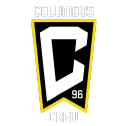
Why they can do well: The Crew have the look of a complete team thanks to the offseason acquisitions of midfielder Darlington Nagbe and playmaker Lucas Zelarayan. They also have a proven goal scorer in MLS in Gyasi Zardes. It was tough to take much from the Crew’s first two games — a red-card-aided 1-0 win over NYCFC and a road point in Seattle that nearly got away from Columbus — but generally speaking, Columbus has the personnel to keep the ball, which will help in the summer heat.
Why they might not: There are some questions about cohesion in the center of defense, where Vito Wormgoor missed time due to injury prior to the shutdown.
The big question: Zelarayan has been a mercurial figure for much of his career, so the Crew will be looking for consistency both in this tournament and beyond.
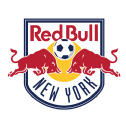
Why they can do well: Their press. It’s a style that can throw teams completely off their rhythm and translate into quick attacks that can result in goals. The Red Bulls also have two solid center-backs in Aaron Long and Tim Parker as well as an underrated attacker in Daniel Royer.
Why they might not: How they defend when they don’t press. New Jersey has its share of heat and humidity during the summer, but it’s still worth asking how often the Red Bulls will be able to push themselves physically with the press. They will definitely need to pick their moments and play better than they have in the past when defending closer to their own goal. Having five subs will help.
The big question: Whither Kaku? There have been moments when it looked like Kaku couldn’t wait to leave MLS, but he’s still here, and his creativity will be key to New York advancing from the group stage. That said, the Red Bulls have also received a boost from midfielder Florian Valot, who was outstanding during the opening weeks of the season after missing the previous 18 months with knee injuries.
Group F
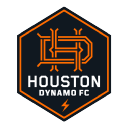
Why they can do well: Getting forward Alberth Elis — who missed the first two games of the season — back should provide a significant boost, and he should succeed in re-forging his partnership with Mauro Manotas. Darwin Quintero gives the Dynamo another attacking weapon as well.
Why they might not: Aside from the three aforementioned players, there’s just not a lot about this Houston roster that impresses, and it’s basically the same squad that didn’t make the playoffs the last two seasons. New manager Tab Ramos has a tough job on his hands.
The big question: Which Quintero will show up? Inconsistency has dogged the Colombian for his entire career, which is what led Minnesota United to give up on him after last season. But when he’s on, he’s dominant. For the Dynamo to get out of the group stage, they’ll need the latter.
1:29
San Jose Earthquakes captain Chris Wondolowski details the team’s transition to the MLS bubble in Orlando, Florida.
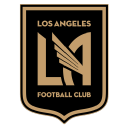
Why they can do well: Simply put, they’re loaded in the attacking half, even without reigning league MVP Carlos Vela (more on him below). The three-headed midfield monster of Mark-Anthony Kaye, Latif Blessing and Eduard Atuesta puts in a tremendous amount of work on both sides of the ball.
Why they might not: The back line has tended to be LAFC’s vulnerability. With Walker Zimmerman having been dealt away in preseason, that concern isn’t going away any time soon, especially after LAFC shipped three goals at home against the Philadelphia Union.
The big question: Who will pick up the slack left by Vela? With sources telling ESPN that the Mexico attacker will forego the tournament, the scoring responsibility will fall to Brian Rodriguez and Diego Rossi. Rodriguez in particular hasn’t shown enough end product
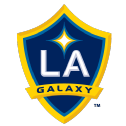
Why they can do well: Even with the departure of Zlatan Ibrahimovic, this is still a talented Galaxy side that boasts attacking threats like Cristian Pavon and Javier “Chicharito” Hernandez. The likes of Sebastian Lletget and Sacha Kljestan can do damage, as can 18-year-old Efrain Alvarez.
Why they might not: There are still questions about how well this team will defend, especially now that Jonathan dos Santos will miss the tournament after undergoing hernia surgery. Two goals conceded from two games hints at improvement, but the spell in Florida will reveal more.
The big question: Can the Galaxy get Chicharito the ball? The transition from Ibrahimovic to Chicharito was bound to encounter some hiccups given the respective styles of the two players, but so far, the Galaxy have struggled to find their new record signing with sufficient frequency. He has but two shots, neither of which were on target. An over-reliance on crosses doesn’t seem the way to go, and the team’s fans will be hoping a bit more nuance will creep into the Galaxy attack.
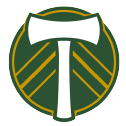
Why they can do well: This is a team with game-breakers in Diego Valeri and Sebastian Blanco. Diego Chara has put together a brilliant career as the Timbers’ defensive midfielder, and now he’s joined by brother Yimmi.
Why they might not: This is a team that at least early hadn’t found its identity yet. Bomb forward — like they did in a home loss to Minnesota — or sit back and counter, like they did in an ugly home win against expansion Nashville? The counter seems the better option for now.
The big question: Who will win out at the forward spot? The Timbers keep trying to push Jeremy Ebobisse out. Last year it was with Brian Fernandez, which ended in bizarre and painful fashion. Over the winter Portland acquired Chilean forward Felipe Mora as well as Jarosław Niezgoda. Mora grabbed most of the minutes to start the season, with Ebobisse in reserve, but Niezgoda is now healthy.
